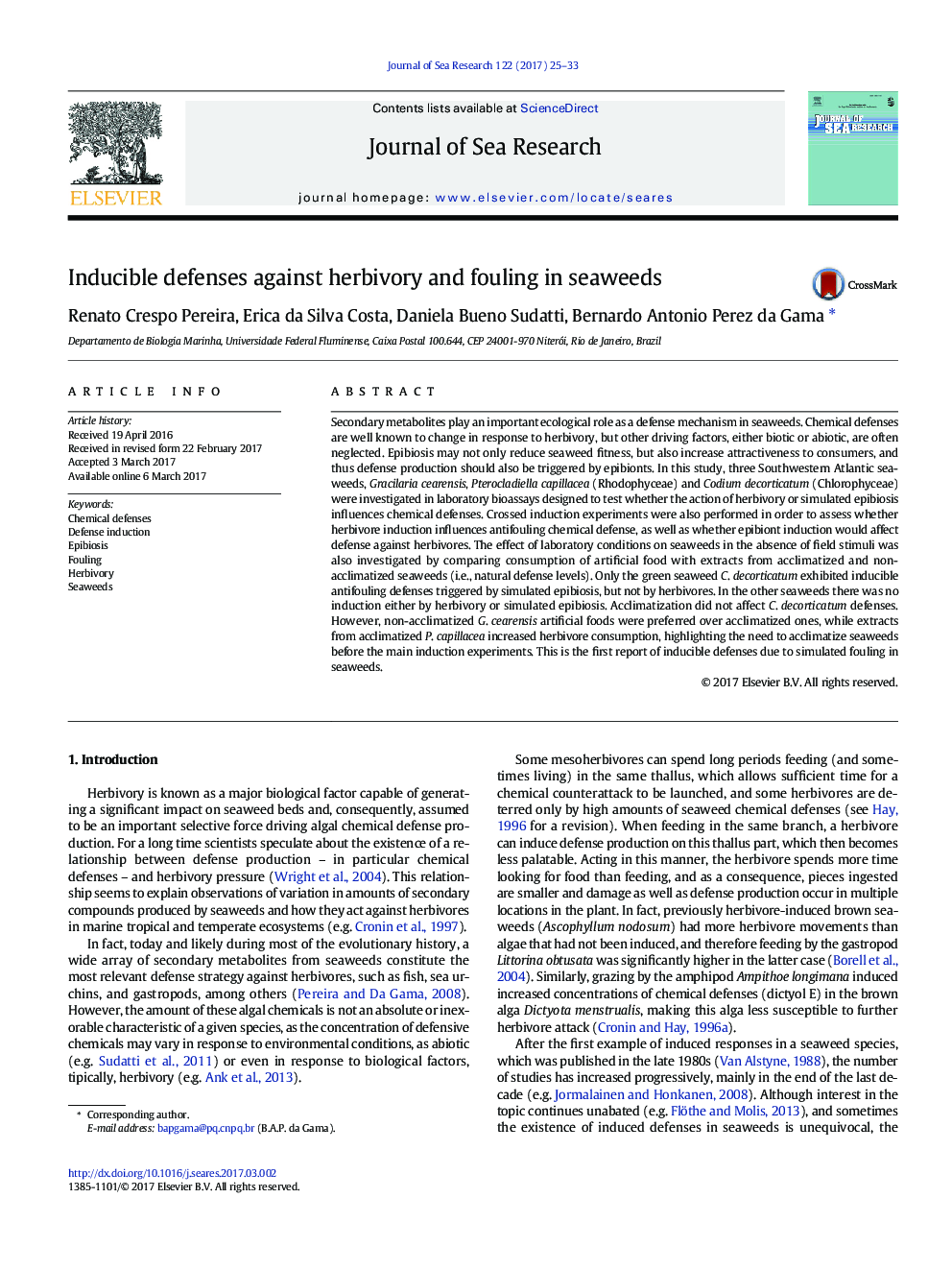| کد مقاله | کد نشریه | سال انتشار | مقاله انگلیسی | نسخه تمام متن |
|---|---|---|---|---|
| 5766113 | 1627453 | 2017 | 9 صفحه PDF | دانلود رایگان |
- Inducible defenses against herbivory and fouling were investigated in three seaweed species.
- Crossed induction experiments were performed in order to assess multiple roles of chemical defenses.
- The green seaweed Codium decorticatum exhibited inducible antifouling defenses triggered by simulated epibiosis.
- After acclimatization, susceptibility to herbivory diverged among red algae, highlighting the importance of this phase prior to induction.
- This is the first report of inducible defenses due to simulated fouling in seaweeds.
Secondary metabolites play an important ecological role as a defense mechanism in seaweeds. Chemical defenses are well known to change in response to herbivory, but other driving factors, either biotic or abiotic, are often neglected. Epibiosis may not only reduce seaweed fitness, but also increase attractiveness to consumers, and thus defense production should also be triggered by epibionts. In this study, three Southwestern Atlantic seaweeds, Gracilaria cearensis, Pterocladiella capillacea (Rhodophyceae) and Codium decorticatum (Chlorophyceae) were investigated in laboratory bioassays designed to test whether the action of herbivory or simulated epibiosis influences chemical defenses. Crossed induction experiments were also performed in order to assess whether herbivore induction influences antifouling chemical defense, as well as whether epibiont induction would affect defense against herbivores. The effect of laboratory conditions on seaweeds in the absence of field stimuli was also investigated by comparing consumption of artificial food with extracts from acclimatized and non-acclimatized seaweeds (i.e., natural defense levels). Only the green seaweed C. decorticatum exhibited inducible antifouling defenses triggered by simulated epibiosis, but not by herbivores. In the other seaweeds there was no induction either by herbivory or simulated epibiosis. Acclimatization did not affect C. decorticatum defenses. However, non-acclimatized G. cearensis artificial foods were preferred over acclimatized ones, while extracts from acclimatized P. capillacea increased herbivore consumption, highlighting the need to acclimatize seaweeds before the main induction experiments. This is the first report of inducible defenses due to simulated fouling in seaweeds.
305
Journal: Journal of Sea Research - Volume 122, April 2017, Pages 25-33
